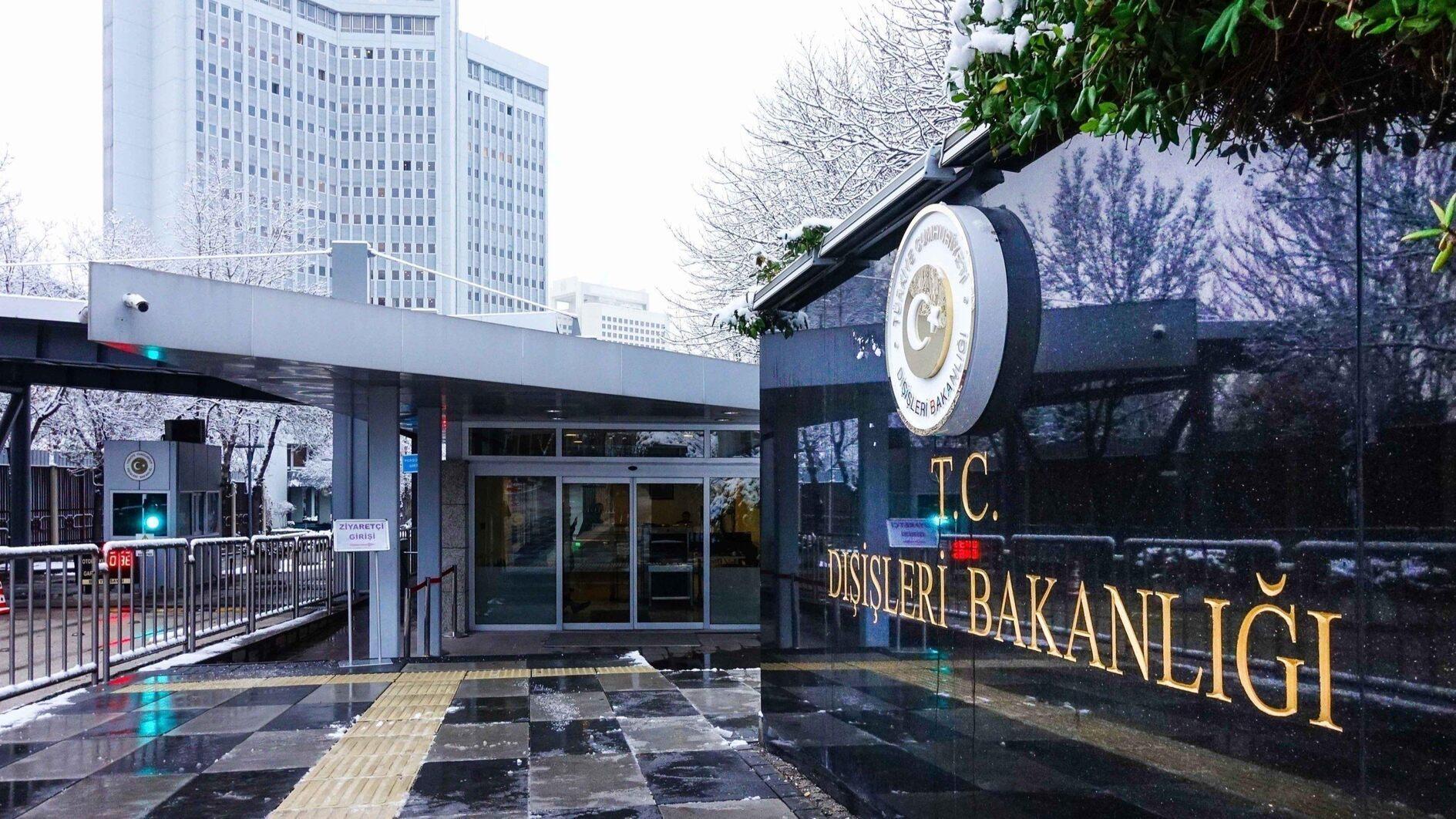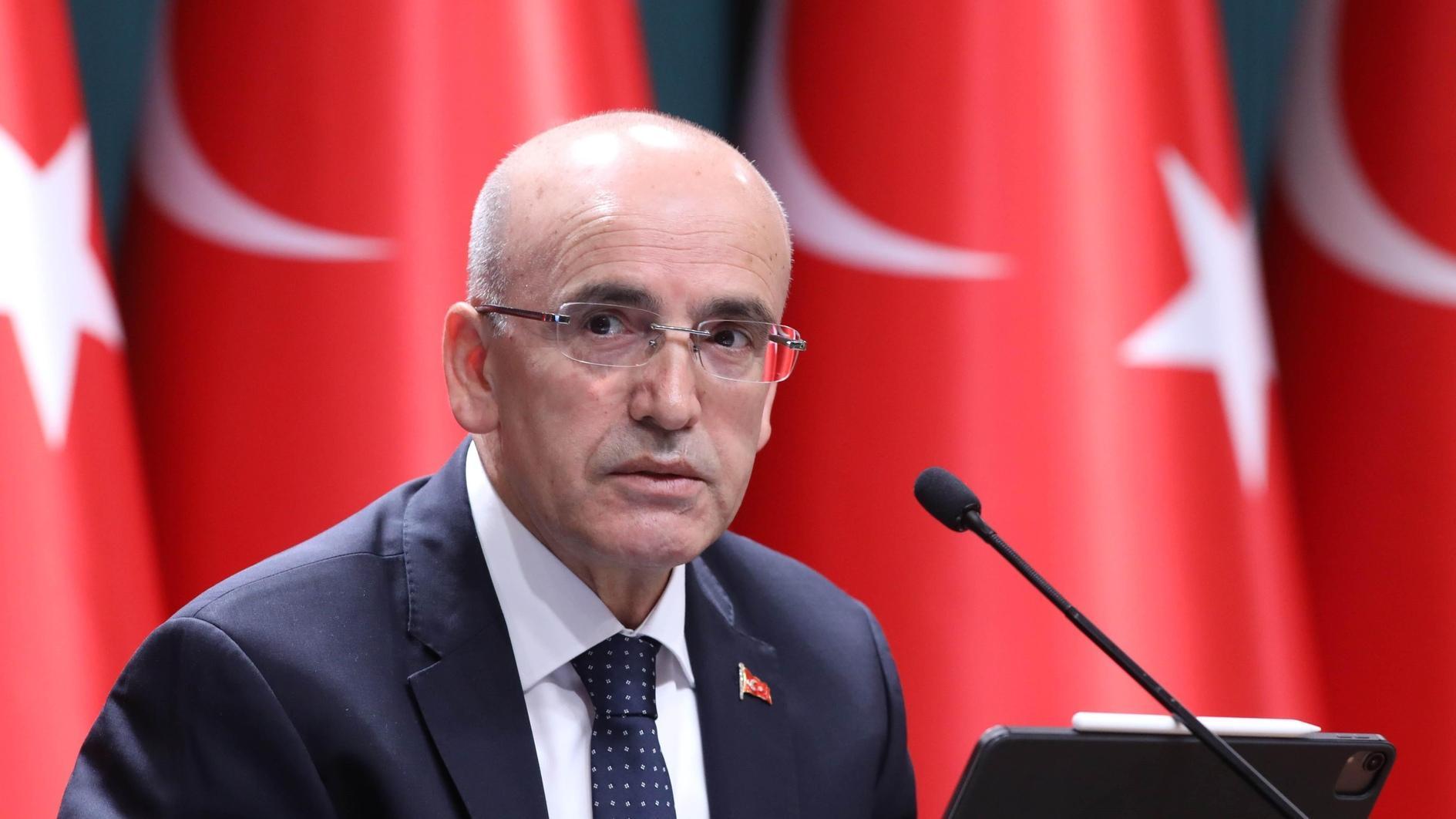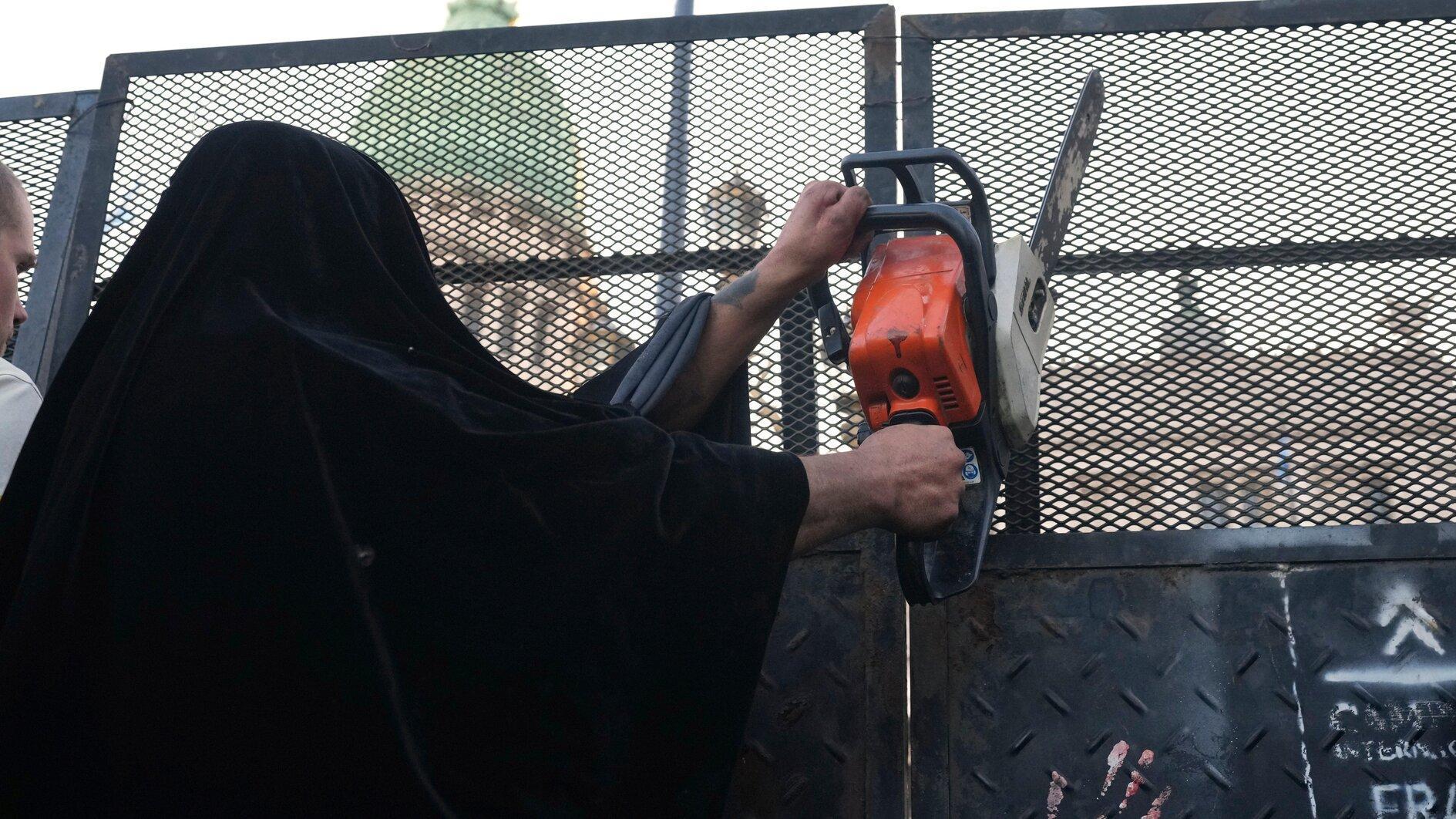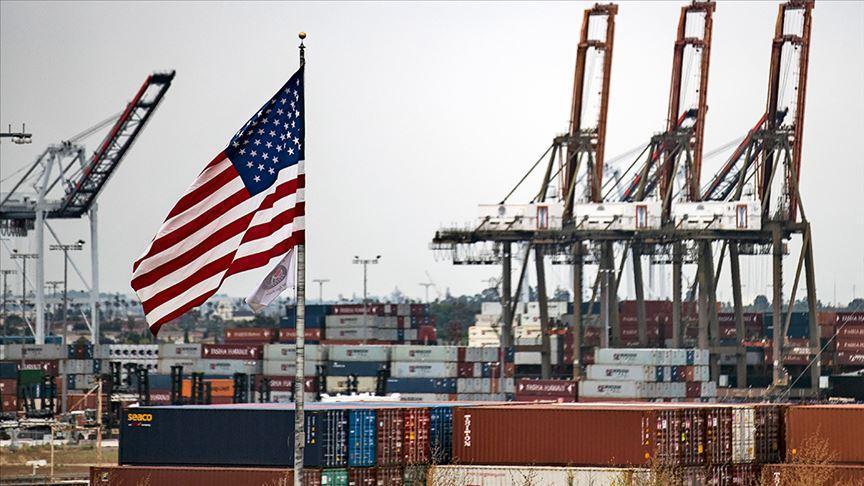Deadly strikes pound Gaza as Israel PM vows to ramp up pressure
GAZA STRIP
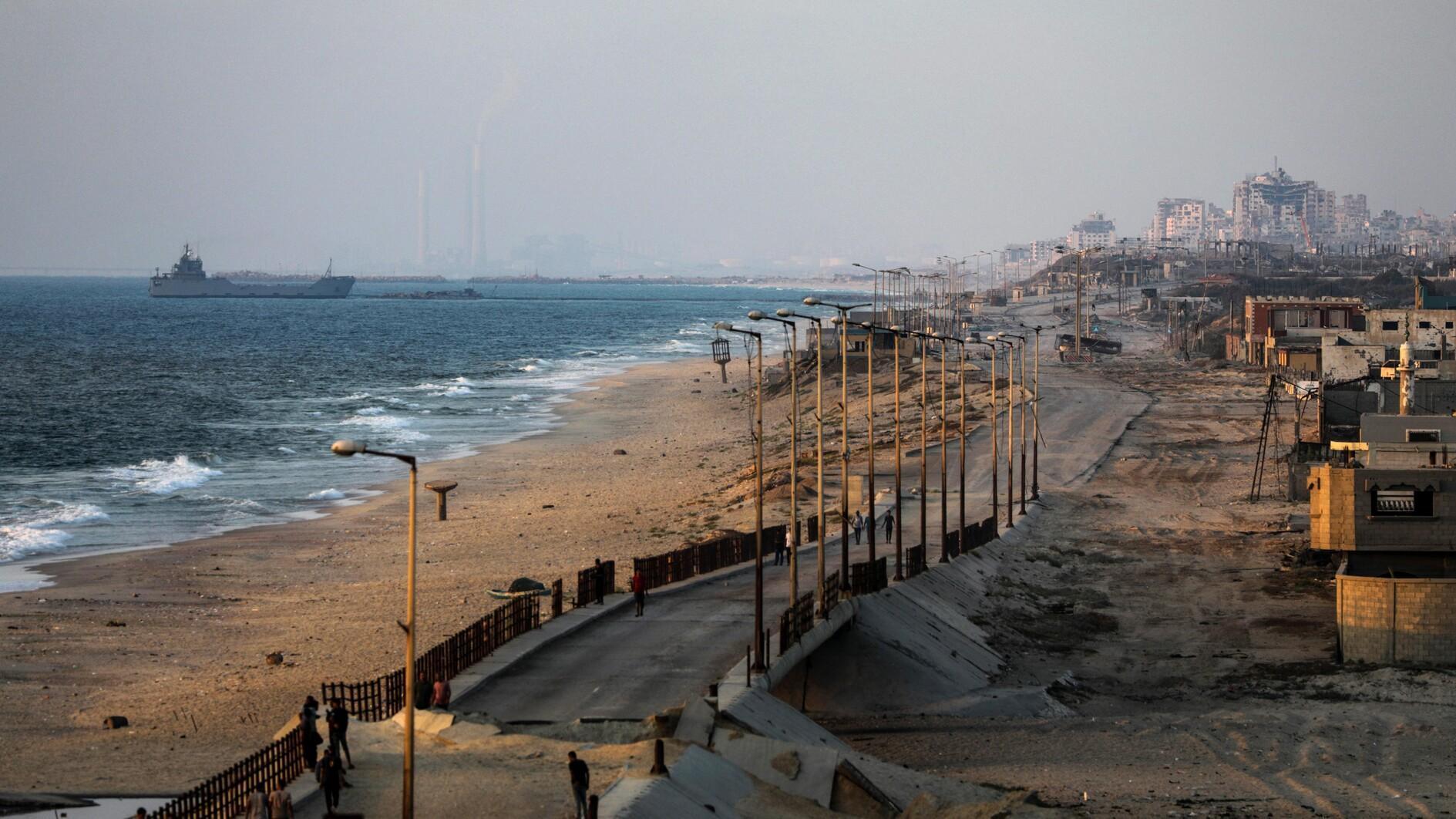
A ship is seen near a temporary floating pier previously anchored by the US to boost aid deliveries in the Gaza Strip, 27 June 2024 (issued 28 June 2024). The US military's problem-plagued mission to bring desperately needed aid into Gaza via a temporary pier has ended, with deliveries shifting to an Israeli port, a senior American officer said Wednesday.
Israel kept up its air strikes on Gaza Wednesday after Prime Minister Benjamin Netanyahu vowed to ramp up the pressure on Hamas as hopes faded for a US-announced ceasefire plan.
Hamas political leader Ismail Haniyeh accused Israel of deliberately undermining negotiations for a truce and hostage release deal because it did not want to end the war.
The Israeli military said it had carried out 25 strikes in 24 hours, targeting "military structures, terrorist infrastructure, terrorist cells and rigged structures".
Netanyahu, who has repeatedly vowed to eradicate Hamas, insisted Tuesday that despite mounting pressure, there would be no let-up in Israel's campaign against the militants.
"This is exactly the time to increase the pressure even more, to bring home all the hostages — the living and the dead — and to achieve all the war objectives," he said.
He rammed home the point in a speech to parliament, saying: "We have got them by the throat; we are on the road to absolute victory."
The health ministry in Hamas-ruled Gaza said 52 people, most of them women and children, had been killed in Israeli strikes over the previous 24 hours.
The territory's civil defense agency said 30 people had been killed in three strikes in Nuseirat refugee camp in central Gaza — one on a U.N.-run school, another on a house and a third on a mosque.
Later on Wednesday it reported 15 deaths across central and northern Gaza from Israeli action, while the health ministry reported three children and a woman killed near Khan Yunis.
In southern Gaza, two people were killed in Israeli bombardment of the Shakush area, northwest of Rafah, a medical source at Nasser Hospital said.
Talks deadlock
At least 90 percent of Gazans have been forced from their homes, many of them seeking refuge in U.N.-run schools. Seven of these schools have been hit by Israeli strikes since July 6.
Nearly 70 percent of U.N.-run schools across Gaza have been hit during more than nine months of fighting, the U.N. agency for Palestinian refugees (UNRWA) said on Tuesday.
"Why do they target us when we are innocent people?" asked Umm Mohammed al-Hasanat, sheltering with her family at a U.N.-run school in Nuseirat, which was among those hit.
"We do not carry weapons but are just sitting and trying to find safety for ourselves and our children."
Washington has been pushing for a truce deal between Israel and Hamas since President Joe Biden released details of what he said was an Israeli ceasefire roadmap on May 31.
But despite the efforts of Egyptian and Qatari mediators, indirect negotiations between the foes have made no headway.
In a telephone call with Turkish Foreign Minister Hakan Fidan late Tuesday, the Hamas leader blamed Israel for the deadlock.
"We dealt positively with the proposals put to us by the mediators but the occupation is avoiding the required outcome and does not want to reach an agreement under which it ends its war," Haniyeh said.
His comments came after a senior Hamas official said Sunday that the group was withdrawing from the current talks following Israel's deadly strikes but was ready to return if its attitude changes.
'No need for pier'
Israel launched its war on Gaza in retaliation for the Hamas' Oct. 7 attacks that resulted in the deaths of more than 1,195 people, mostly civilians, according to Israeli official figures.
Hamas seized 251 hostages. Of these 116 remain in Gaza, although the army says 42 of them are dead.
Israel's offensive has killed more than 38,790 people in Gaza, mostly civilians, according to the Hamas-run territory's health ministry.
The war has devastated the coastal territory and left Gazans suffering shortages of food, medicines and basic goods.
At a press conference on Wednesday, the World Health Organization's representative in Gaza and the occupied West Bank, Rik Peeperkorn, said that only 16 aid trucks had entered the Gaza Strip via the Kerem Shalom border crossing during the last month, while dozens of trucks were still waiting to do so.
The main crossing point for aid, Rafah, which connects Gaza with Egypt, has been closed for months since Israel sent ground troops into the city.
The WHO also said that out of the territory's 36 hospitals, only 15 were partially functioning and that there had been more than a thousand attacks against health facilities in Gaza since October.
Meanwhile, the U.S. military announced that its problem-plagued mission to deliver aid via a temporary pier had officially ended.
U.S. President Joe Biden has expressed disappointment in the performance of the pier, which has repeatedly broken free of the shore because of bad weather since its initial installation in mid-May, limiting the time it has been operational.
Vice Admiral Brad Cooper told reporters the mission was "complete, so there's no more need to use the pier"
"The maritime surge mission involving the pier is complete, so there's no more need to use the pier," Vice Admiral Brad Cooper told journalists. "It's now transitioning... to a port in Ashdod, Israel," which "offers a more sustainable path."
Deliveries from Cyprus to Ashdod, and then on to northern Gaza, have already begun, with more than a million pounds of aid moving via that route in recent weeks, said Cooper, the deputy head of the U.S. Central Command.
He hailed the temporary pier effort — via which nearly 20 million pounds of aid arrived during the roughly 20 days it was operational — as a "historically unprecedented operation to deliver aid into an active combat zone without any U.S. boots on the ground."
But the project — which Cooper said cost less than a previous estimate of $230 million, though a final figure is not yet available — has faced repeated issues starting in May, when the pier was damaged by bad weather and had to be removed for repairs.
It was then reattached on June 7, but was moved to Ashdod on June 14 to protect it from anticipated high seas — a situation that was repeated later in the month.
Land, air and sea
Distribution of aid once it reached land has also been a problem, with the U.N. World Food Programme suspending deliveries of assistance that arrived via the pier last month to assess the security situation after Israel conducted a military operation nearby.
Biden announced the pier project during his State of the Union address in March as Israel held up deliveries of assistance by land, and the Pentagon has said it helped push the Israeli government to open more aid routes.
"The deployment of this pier has... helped secure Israeli commitment to opening additional crossings into northern Gaza," Deputy Pentagon Press Secretary Sabrina Singh recently told journalists.
But the president told a news conference last week that the pier had not worked as well as he had hoped.
"I've been disappointed that some of the things that I've put forward have not succeeded as well, like the port we attached from Cyprus — I was hopeful that would be more successful," Biden said of the project.
In addition to working to establish a maritime route for aid to Gaza, the United States has also worked with other countries to conduct air drops, which Cooper said have delivered more than 2.4 million pounds of aid so far, "ensuring vital assistance reached the point of need very quickly."
And "our forces have coordinated with international partners to open new land routes, enabling the transportation of 33.5 million pounds of aid into Gaza via land so far," he said.


